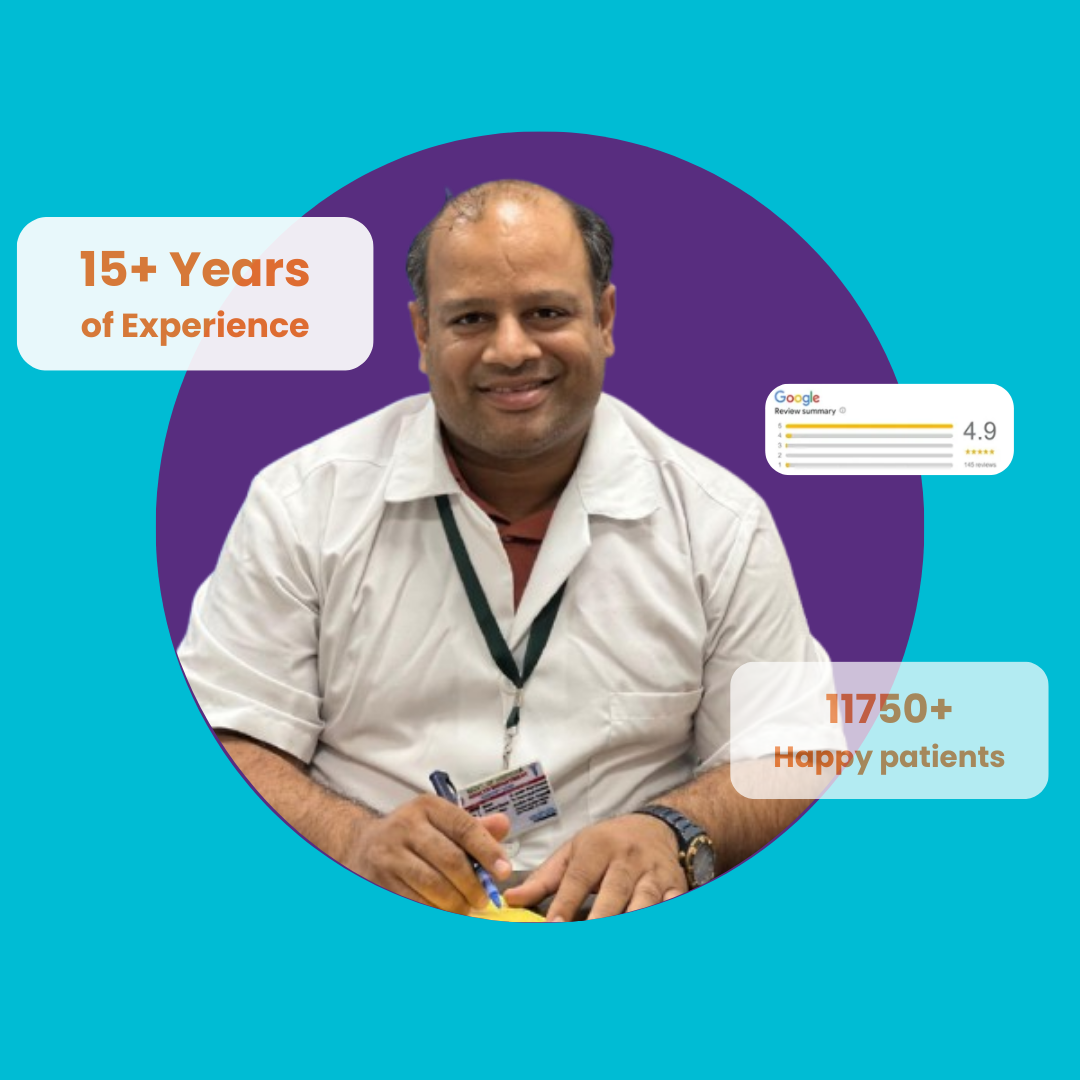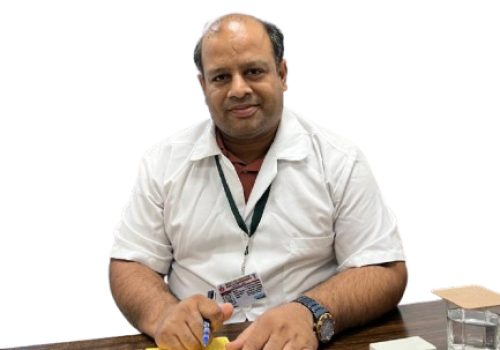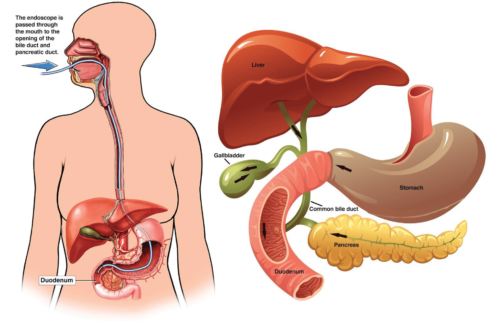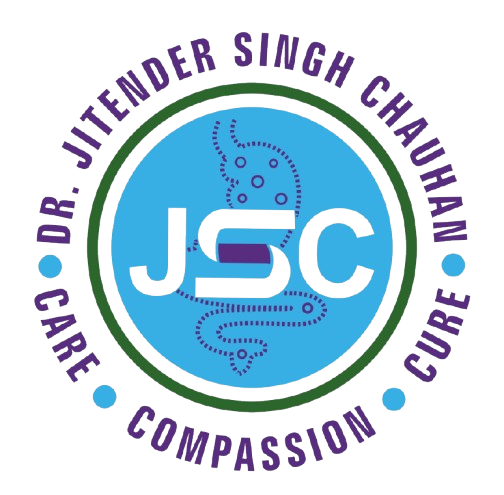Dr. Jitender Singh Chauhan
Best Onco Surgeon in Haryana
This is where Dr. Jitender Singh Chauhan steps in as one of the most trusted Gastro Surgeons and Oncology experts in Haryana, with over 15 years of experience in treating various complex gastrointestinal and oncological conditions. Dr. Jitender Singh Chauhan stands out among other specialists in Haryana due to his extensive training, compassionate care, and dedication to providing the best surgical outcomes for his patients.


Dr. Jitender Singh Chauhan
Dr Jitender Singh chauhan is the leading liver cancer specialist in India. He has treated hundreds of patients with liver cancers. He has more than 15+ years of experience in treating liver cancer.
Management of liver cancer involves proper diagnosis & early treatment. Diagnosis is performed with Triple phase CT scan & AFP level. The treatment involves surgery, chemotherapy, TACE, TARE or RFA.
Trusted Name
11500+ satisfied patients
Rich Experience
Having 15+ years of experience
Safe Surgical Hands
1000+ successful operations performed
Dr. Jitender Singh Chauhan experience as a Laparoscopic surgery doctor
Dr. Jitender Singh Chauhan, a highly experienced and skilled GI cancer specialist and surgical oncologist, is based in Ambala Cantt, Haryana, India. Known for his exceptional surgical precision and compassionate patient care, Dr. Chauhan has established himself as a leading expert in gastrointestinal cancer surgeries. His expertise spans across treating complex cases involving liver, stomach, pancreas, and colorectal cancers, positioning him as one of the top oncologists in the region.
Dr. Jitender Singh Chauhan is recognized not only as a leading GI cancer specialist in Ambala Cantt, Haryana but also across the state and beyond. Known for his exceptional surgical precision, Dr. Chauhan’s expertise spans a wide array of advanced surgical techniques, tailored to achieve the best possible outcomes for patients with complex gastrointestinal cancers. His commitment to innovation and patient care ensures that his approach is both cutting-edge and minimally invasive.
Dr. Jitender Singh Chauhan’s pioneering contributions in gastrointestinal cancer surgery have established him as a leader in the field, particularly across Haryana and India. His innovative approaches to surgical interventions, combined with his vast expertise in complex GI cancer surgeries, position him as a preferred choice for individuals seeking advanced and compassionate cancer care.

Laparoscopic Surgery
Laparoscopy is a type of surgery that gets its name from the laparoscope, a slender tool that has a tiny video camera and light on the end. When a surgeon inserts it through a small cut into your body, they can look at a video monitor and see what’s happening inside you. Without those tools, they’d have to make a much larger opening. Thanks to special instruments, there’s less cutting, and your surgeon doesn’t have to reach into your body, either.
Types of Laparoscopy
A variety of surgeries can be done laparoscopically, including:
- Adrenal gland removal
- Appendectomy
- Biopsies
- Bladder removal
- Cancer
- Cyst, fibroid, stone, and polyp removals
- Ectopic pregnancy removal
- Endometriosis surgery
- Esophageal surgery
- Gallbladder removal
- Gastric bypass surgery
- Hernia repair surgery
- Kidney removal
- Prostate removal
- Rectal prolapse repair
- Rectum removal
- Removal of part of the bowel
- Removal of part of the liver
- Small tumor removals
- Spleen removal
- Stomach removal
- Testicle correction surgery
- Tubal ligation and reversal
- Urethral and vaginal reconstruction surgery
Doctors also use laparoscopic surgery to help diagnose patients if the results of imaging tests such as CT, MRI, and ultrasound aren’t clear. The laparoscopy allows doctors to take a better look at an area of concern. They can also use it to look for the cause of belly or pelvic pain.
Preparing for Laparoscopy
Your doctor will let you know what’s required before your laparoscopy. Share all the medications you are taking with your doctor. You may need to stop taking certain medications before surgery. Some of these medications include:
- Anticoagulants, such as blood thinners
- Nonsteroidal anti-inflammatory drugs (NSAIDs), including aspirin (Bufferin) or ibuprofen (Advil, Motrin IB)
- Other medications that affect blood clotting
- Herbal or dietary supplements
- Vitamin E
Because the small incisions will be around your waist, plan to wear loose-fitting clothes that won’t rub or irritate as you heal after surgery. You also can’t eat or drink for 8 hours before the surgery.
Laparoscopy Procedure
Before your laparoscopy, you might have to take imaging or blood and urine tests. You’ll have an IV inserted into a vein so you can receive fluids, pain medications, and anesthesia during the procedure. Doctors will also put a breathing tube down your throat to make sure your airway stays open. You might have a urinary catheter inserted, and then your skin will be cleaned with a disinfectant solution.
To begin the procedure, your surgeon will make the necessary small cuts in your belly or pelvic area, and tubes will be placed for the camera and tools. A drain might also be placed.
In some operations, the surgeon can put the camera and the surgical tool through the same opening in the skin. It might mean less scarring, but it’s trickier for your surgeon because the instruments are so close together.
In other cases, your doctor may decide to use a device that lets them reach in with a hand. This is called “hand-assisted” laparoscopy. The cut in the skin must be more than half an inch in length, but it still can be smaller than the one made in traditional surgery. This method has made it possible to use laparoscopic surgery for the liver and other organs.
Next, carbon dioxide will be pumped in to separate your abdominal wall from your organs. This will make it easier for the surgeon to see your organs. Finally, your doctor can put a camera and tools through the tube or tubes, and they can complete the procedure guided by images on a video monitor.
Laparoscopy Recovery
You may feel some discomfort after laparoscopic surgery, and this is normal. Here’s what you might experience as you recover:
Nausea. Your doctor may recommend you drink clear liquids until the nauseous feeling passes. Avoid carbonated beverages for a few days. You can then move on to soft foods and resume your regular diet after your doctor’s approval.
Shoulder pain. As you recover, you might notice pain in your shoulders. It’s caused by the carbon dioxide used to inflate your abdomen during the surgery. The leftover gas can press on a nerve, which directs pain to your shoulder area. The discomfort should stop in 1-2 days.
Incision pain. You’ll receive instructions on how to care for your incisions before you leave the hospital. However, if your wounds become red, swollen, or painful, or if you have discharge or bleeding, call your doctor right away. If you still have a drain in place, you will need to keep the tubing clear and might need to empty the collected fluids a few times a day.
Abdominal or pelvic pain. You should start to feel better after a few days, but if it starts to get worse, call your doctor.
Constipation, tiredness or soreness, and trouble sleeping. Talk to your doctor if any of these side effects of surgery bother you.
How long does it take to recover from a laparoscopy?
Recovery time depends on the type of surgery. You should be completely recovered from a minor surgery in 3 weeks. Recovery from a major surgery can take up to 12 weeks.
Benefits of Laparoscopic Surgery
Laparoscopic surgery has several advantages over traditional surgery. Because it involves less cutting:
- You have smaller scars.
- You get out of the hospital quicker.
- You’ll feel less pain while the scars heal, and they heal quicker.
- You get back to your normal activities sooner.
- You may have less internal scarring.
- You’ll have a reduced risk of wound infection.
- You’ll have a reduced risk of hemorrhage.
- You’ll need less pain medication.
Here’s an example. With traditional methods, you might spend a week or more in the hospital for intestinal surgery, and your total recovery might take 4-8 weeks. If you have laparoscopic surgery, you might stay only two nights in the hospital and recover in 2 or 3 weeks. And a shorter hospital stay generally costs less.
Why Choose Dr. Jitender Singh Chauhan?
Dr. Jitender Singh Chauhan brings a wealth of experience in acute abdomen surgery, ensuring that patients receive the best possible care. His personalized and patient-centered approach helps patients and their families feel supported throughout the entire treatment process.
Dr. Chauhan’s practice is equipped with the latest medical technology, enabling accurate diagnoses and efficient surgical treatments.
From emergency admission to the final stages of recovery, Dr. Chauhan and his team provide holistic care that addresses both the physical and emotional needs of the patient.
Frequently Asked Questions
A minimally invasive surgery using small incisions and a camera to perform procedures inside the body.
Smaller scars, less pain, quicker recovery, and reduced risk of complications.
Gallbladder removal, hernia repair, appendectomy, bariatric surgery, and more.
Small incisions are made to insert a camera and instruments, with the procedure guided by real-time images.
Yes, it’s considered safe with fewer risks than open surgery when performed by an experienced surgeon.
Recovery is faster than traditional surgery, with most patients resuming normal activities within a few days to a week.
Most patients can resume light activities within a week and full activities in 2-4 weeks.

